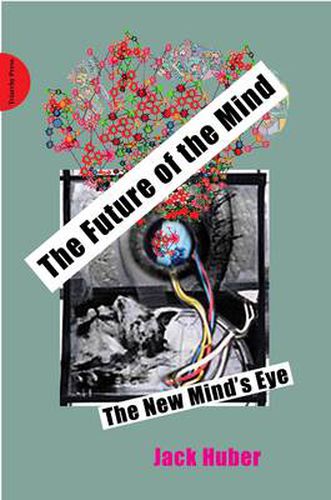Readings Newsletter
Become a Readings Member to make your shopping experience even easier.
Sign in or sign up for free!
You’re not far away from qualifying for FREE standard shipping within Australia
You’ve qualified for FREE standard shipping within Australia
The cart is loading…






This title is printed to order. This book may have been self-published. If so, we cannot guarantee the quality of the content. In the main most books will have gone through the editing process however some may not. We therefore suggest that you be aware of this before ordering this book. If in doubt check either the author or publisher’s details as we are unable to accept any returns unless they are faulty. Please contact us if you have any questions.
Our lives are increasingly spent online. Work, friends, games, reading - all are increasingly digital and virtual. Google Glass is next. How are these extraordinary changes affecting our brains, our minds and the way we think, talk and relate? Parents, scientists, doom-mongers and sociologists are among the many people speculating about what is going to become of us as we become increasingly absorbed by electronic media and ever more remote from our natural environment. Jack Huber is clear that what he calls ‘the cyberous’ is changing the whole way that our minds work. But he is also clear that we can’t hope to understand the effects and implications fully without a better understanding of how the mind came to be what it is over the course of human evolution. So he takes us on a historical and biological tour of the human-mind-in-its-environment and focuses on three ‘trajectories’ in particular: our capacity to recognise patterns (which includes our capacity to use and understand metaphor) vision (which is much more than sight post-birth development From there he looks at how our past will influence our future, giving us a glimpse of what collaboration with cyberous environments will bring to our minds and to ‘self’ in the future - a glimpse of what and who we will become. In doing so, he suggests three futures of the mind: Unknowable mind Absentee mind Transcendent mind Fascinating stuff! Is the future bright? You decide.
$9.00 standard shipping within Australia
FREE standard shipping within Australia for orders over $100.00
Express & International shipping calculated at checkout
This title is printed to order. This book may have been self-published. If so, we cannot guarantee the quality of the content. In the main most books will have gone through the editing process however some may not. We therefore suggest that you be aware of this before ordering this book. If in doubt check either the author or publisher’s details as we are unable to accept any returns unless they are faulty. Please contact us if you have any questions.
Our lives are increasingly spent online. Work, friends, games, reading - all are increasingly digital and virtual. Google Glass is next. How are these extraordinary changes affecting our brains, our minds and the way we think, talk and relate? Parents, scientists, doom-mongers and sociologists are among the many people speculating about what is going to become of us as we become increasingly absorbed by electronic media and ever more remote from our natural environment. Jack Huber is clear that what he calls ‘the cyberous’ is changing the whole way that our minds work. But he is also clear that we can’t hope to understand the effects and implications fully without a better understanding of how the mind came to be what it is over the course of human evolution. So he takes us on a historical and biological tour of the human-mind-in-its-environment and focuses on three ‘trajectories’ in particular: our capacity to recognise patterns (which includes our capacity to use and understand metaphor) vision (which is much more than sight post-birth development From there he looks at how our past will influence our future, giving us a glimpse of what collaboration with cyberous environments will bring to our minds and to ‘self’ in the future - a glimpse of what and who we will become. In doing so, he suggests three futures of the mind: Unknowable mind Absentee mind Transcendent mind Fascinating stuff! Is the future bright? You decide.